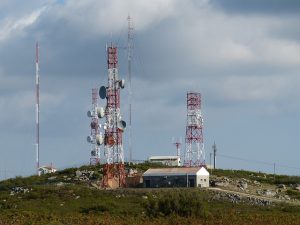By Egline Samoei.
“The Covid-19 pandemic has shown us clearly that the Internet is no longer a luxury, a convenient enhancement for lifestyles for those who can afford it. Rather, Internet access has become a basic necessity†– Dr. Merten Reglitz.
When the Covid-19 pandemic first hit the country in March 2020, the government acted swiftly by closing schools, allowing people to work from home, suspending public gatherings, imposing Covid-19 rules for matatus, and imposing travel restrictions. The pandemic was strange and something new that nobody had witnessed, not knowing how to go through it.
As a result, it was time for people, companies, and the government to figure out how to be connected while maintaining social distance. The unifying thing was the Internet. The Internet has played a crucial role during the Covid-19 pandemic in enabling employees to work from home, students participate in online classes, holding virtual meetings, and shopping online. On the other hand, Covid-19 exposed the digital divide and inequality of internet access in the country. According to the Kenya National Bureau of Statistics (KNBS) census report, one in five Kenyans has internet access.
Online Learning.
When learning institutions resorted to online classes, there were a lot of concerns from the students, parents, and lecturers citing the digital divide. Take for instance the case for University of Nairobi students. They took Twitter using the hashtag #UONboycottonlineclasses to complain about the challenges of online classes. Some of the complaints were slow internet speeds, unaffordable internet bundles, power blackouts, and lack of laptops among others that made online learning difficult.
Working from Home.
Working from home and being able to deliver means that you need to be connected to the Internet and use video conferencing and collaboration tools like Zoom, Skype, Microsoft Teams, and Slack just mention a few. However, in an article published by Liz Orembo a KICTANet associate, on KICTANet she says “During a Siasa Place and KICTANet Twitter chat on remote working experiences for women, participants expressed the difficulties of working from home including frequent power outages and Internet downtime due to increased bandwidth demand, interrupted work from time to time. This is an indicator of the fact that most Kenyans access the Internet from their workplaces and that home broadband is still a luxury for many.â€
Kenyan Government Efforts to Make Internet Affordable.
On 23 March 2020, President Uhuru Kenyatta announced the approval of Google Loon Services in Kenya to enable 4G data coverage in remote areas of the country for people to stay connected while working remotely during the pandemic. Google has since terminated the Loon project because of unsustainable business models. Although the government effort is commendable, not all Kenyans are still fully connected to the Internet and not everyone can afford the Internet. This is not in line with the 10 Internet right and principles which are:
- Universality and Equality
- Rights and Social Justice
- Accessibility
- Expression and Association
- Privacy and Data Protection
- Life, Liberty, and Security
- Diversity
- Network Equality
- Standards and Regulation
- Governance
As we continue to adapt to the new norm, the Internet should be made accessible and affordable to all. This ensures that everybody shares information online, access information online, perform transactions, deliveries and express their Internet freedom. The government should implement policies that ensure that everyone is connected to the Internet. On the other hand, organizations must provide access and connectivity options to their employees and students.
Egline Samoei, a KeSIG 2020 fellow is a digital marketer, a technology writer, and founder of Samodigital Agency.




